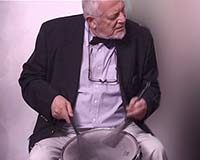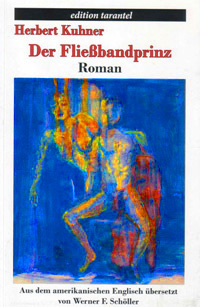“Red” of “Murder Incorporated”
The wonderful thing about Orthodox Judaism is that your life is all laid out for you. All you have to is follow the religious laws. Do that – and you can’t go wrong!
Here’s a quote from a PR Text for “Kosher Nostra: Jewish Gangsters in America 1890-1980,” The Jewish Museum, Vienna, November 2003: “Samuel ‘Red’ Levine, a cold-blooded contract killer, who was a strict orthodox Jew and therefore did not murder on the Sabbath.”
Yeah, Red followed all the religious laws – save one, and he adhered to nine of the Ten Commandments. The only Commandment Red circumvented was the 5th.
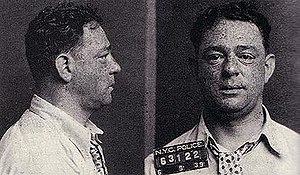
Samuel ‘Red’ Levine
Red was the number-one hit man of Murder Incorporated. Maybe carrying out a contract isn’t quite so nice, but otherwise, he must have been all-right guy.
Listen, nobody’s perfect. Red was a good family man, and he saw to it that there was food on the table and that the rent was paid. He stayed home on the Sabbath, and if the lights were off, he stayed in the dark. Flicking a switch was taboo. Snuffing out a life on any other day wasn’t.
There have been films about Jewish gangsters who had a good side to them like Lepke and Bugsy. Red Levine’s story cries out to be filmed, but this is a film that won’t ever come to be. Red’s story is the greatest put-down of religion never to be on celluloid.
Elephant Story
In 1958, Darryl Zanuck produced The Roots of Heaven, directed by John Houston, based an the novel by Romain Gary which dealt with man’s decimation of elephants in Africa. In The Roots the elephant represents fauna, nature, freedom and all good things. A group of’ freedom lovers bands together and terrorizes the elephant hunters and ivory traders. Being humanists, they don’t kill them; they merely frighten and publicly humiliate them. To give an example, the freedom lovers crash a cocktail party at gunpoint and spank a lady elephant hunter.
While Houston was shooting the film in the Congo, producer Zanuck did some shooting of his own – he went elephant hunting.
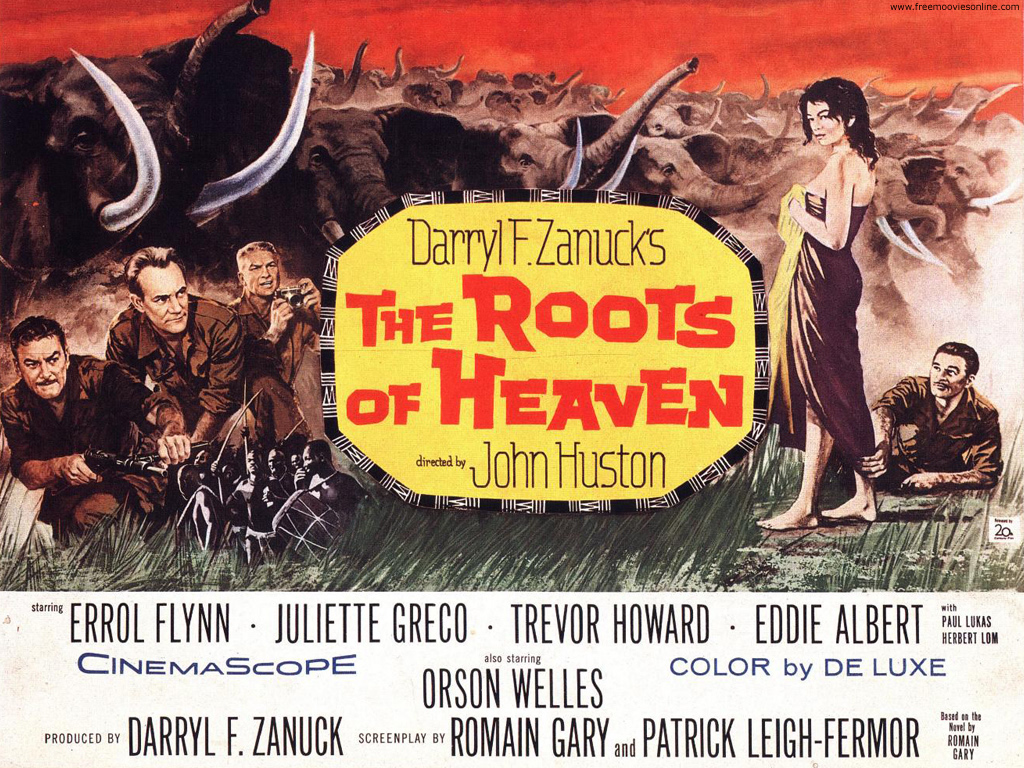
Tarzan and Bogey on the Sidelines
At the age of eight I saw Tarzan Triumphs at the Garden Theater in Princeton, which was the local home of the B-films and Saturday matinees. While flying over the jungle, a plane carrying a group of Nazis has engine trouble and one and all bail out before it crashes. Tarzan comes to their aid, and to show their gratitude, they go about establishing a microcosm of the Third Reich among the natives and the animals. For a while, Tarzan doesn’t want to get involved and stays on the sidelines. Jane prods him and finally succeeds in opening his eyes to the danger of the “New Order.” Needless to say, Tarzan takes action to banish the budding Reich from his jungle home. Of course, we kids couldn’t wait for Tarzan to take care of the Nazis the way he took care of crocodiles. And we were relieved when he let out his cry and swung on the vines, closing in on the brown brood. The same theme manifests itself in Casablanca, which I saw at an evening performance at the more prestigious Princeton Playhouse the home of the A-films. Unfortunately that beautiful colonial-style theater has gone the way of most movie houses. Its ghost hovers over a parking lot. I and my friends Albert and Buddy sat in the third row looking up at a grainy Bogeyand Bergman, and in spite of the love scenes, we loved the film. It is the melodrama of all melodramas and the pot boiler of all pot boilers. The camera is everything but static. I’ve seen it several times since then. Nary a cliché is missing, but what marvelous direction! Michael Curtiz was a director who could get good juice out of the worst orange.

from the Movie: Casablanca
Like Tarzan, Bogey doesn’t want to get involved and tries to stay on the sidelines as the Nazis hunt down resistance fighters in Vichy Morocco. But of course, with the help of Bergman’s prodding, the patriotic message comes through and Bogey, alias Rick, joins the just fight.
Later on, as an adult, having returned to Austria, I simply wanted to write and stay out of trouble. But I was challenged right off the bat and I was confronted with the Tarzan-Bogey dilemma. I didn’t have Jane or Bergman to prod me, but then I guess I didn’t need any prodding. And once the pattern had been set, I had to take the Tarzan-Bogey decision again and again. I have termed my adversaries successors to their predecessors. They invariable labeled themselves as “anti-fascists.” Every Mafioso uses that pose as a cover for double-dealing.
The Mafia builds hospitals, orphanages and old age homes, but that’s not what the Mafia is about. It puts the first two to good use and helps to prevent the third from becoming a necessity.
Years later, as I look back, I wonder what gummed up the works. All I wanted was to be carefree and have an easy time of it, to skim the cream from the top, to have smooth sailing with no sweat and to stay out of conflicts.
Little did I realize as I sat in those dark movie houses half a century ago that a major revelation had been made.
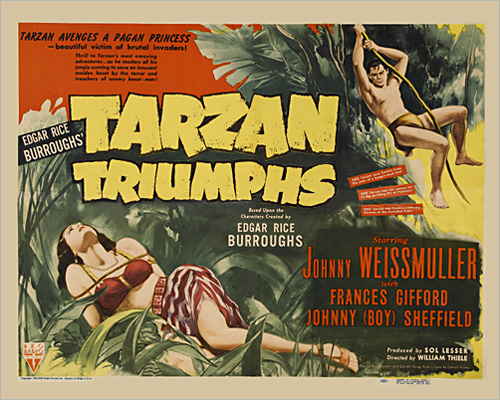
to be continued . . .
– Herbert Kuhner









 Users Today : 240
Users Today : 240 Users Yesterday : 122
Users Yesterday : 122 This Month : 2677
This Month : 2677 This Year : 19610
This Year : 19610 Total Users : 177705
Total Users : 177705 Views Today : 344
Views Today : 344 Total views : 1868379
Total views : 1868379 Who's Online : 48
Who's Online : 48
